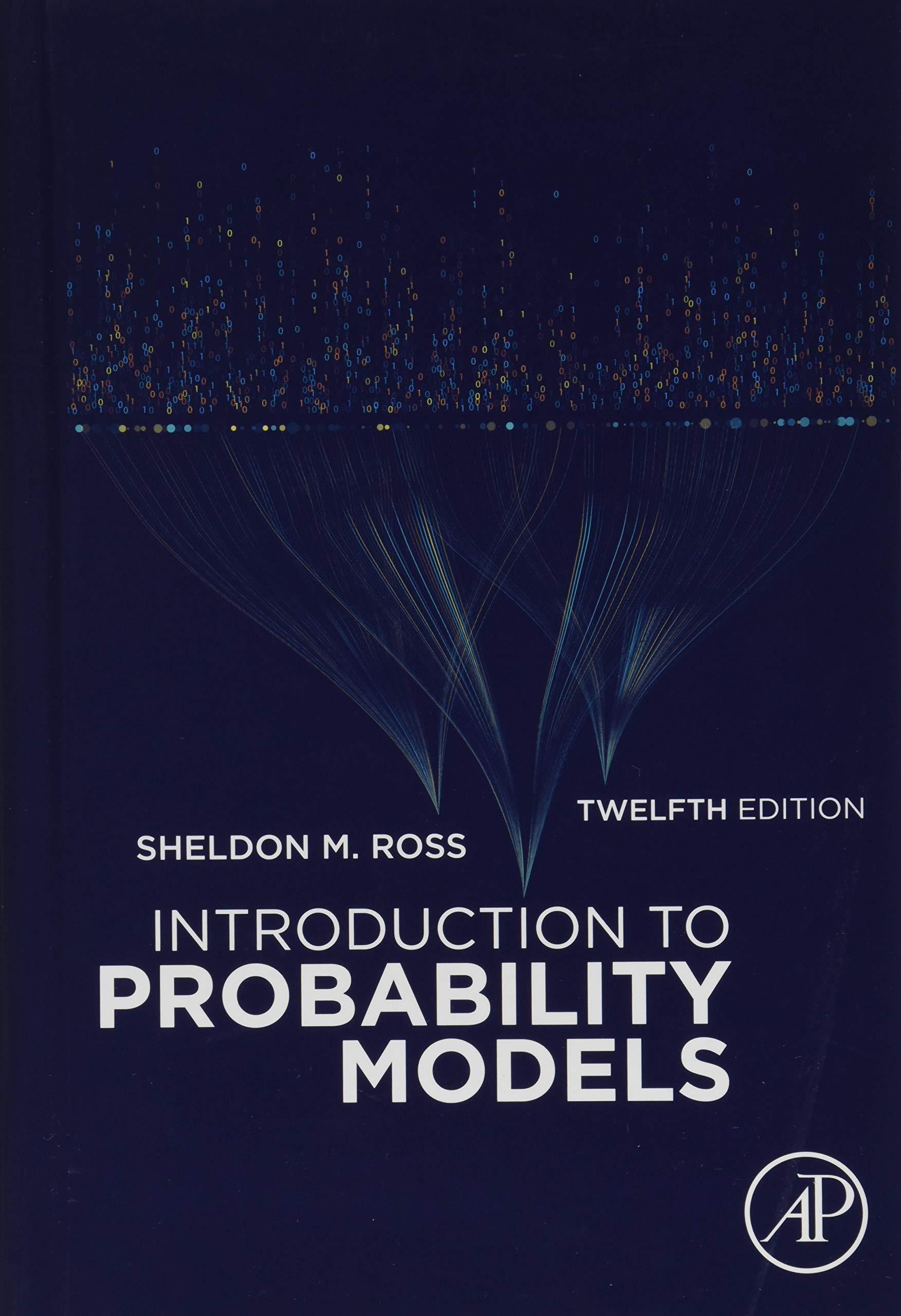44. A system of N machines operates as follows. Each machine works for an exponentially distributed time
Question:
44. A system of N machines operates as follows. Each machine works for an exponentially distributed time with rate λ before failing.
Upon failure, a machine must go through two phases of service.
Phase 1 service lasts for an exponential time with rate μ, and there are always servers available for phase 1 service. After competing phase 1 service the machine goes to a server that performs phase 2 service. If that server is busy then the machine joins the waiting queue. The time it takes to complete a phase 2 service is exponential with rate v. After completing a phase 2 service the machine goes back to work. Consider the continuous time Markov chain whose state at any time is the triplet of nonnegative numbers where , with the interpretation that of the N machines, are working, are in phase 1 service, and are in phase 2 service.
(a) Give the instantaneous transition rates of this continuous time Markov chain.
(b) Interpreting the reverse chain as a model of similar type, except that machines go from working to phase 2 and then to phase 1 service, conjecture the transition rates of the reverse chain. In doing so, make sure that your conjecture would result in the rate at which the reverse chain departs state upon a visit being equal to the rate at which the forward chain departs that state upon a visit.
(c) Prove that your conjecture is correct and find the limiting probabilities.
Step by Step Answer:







